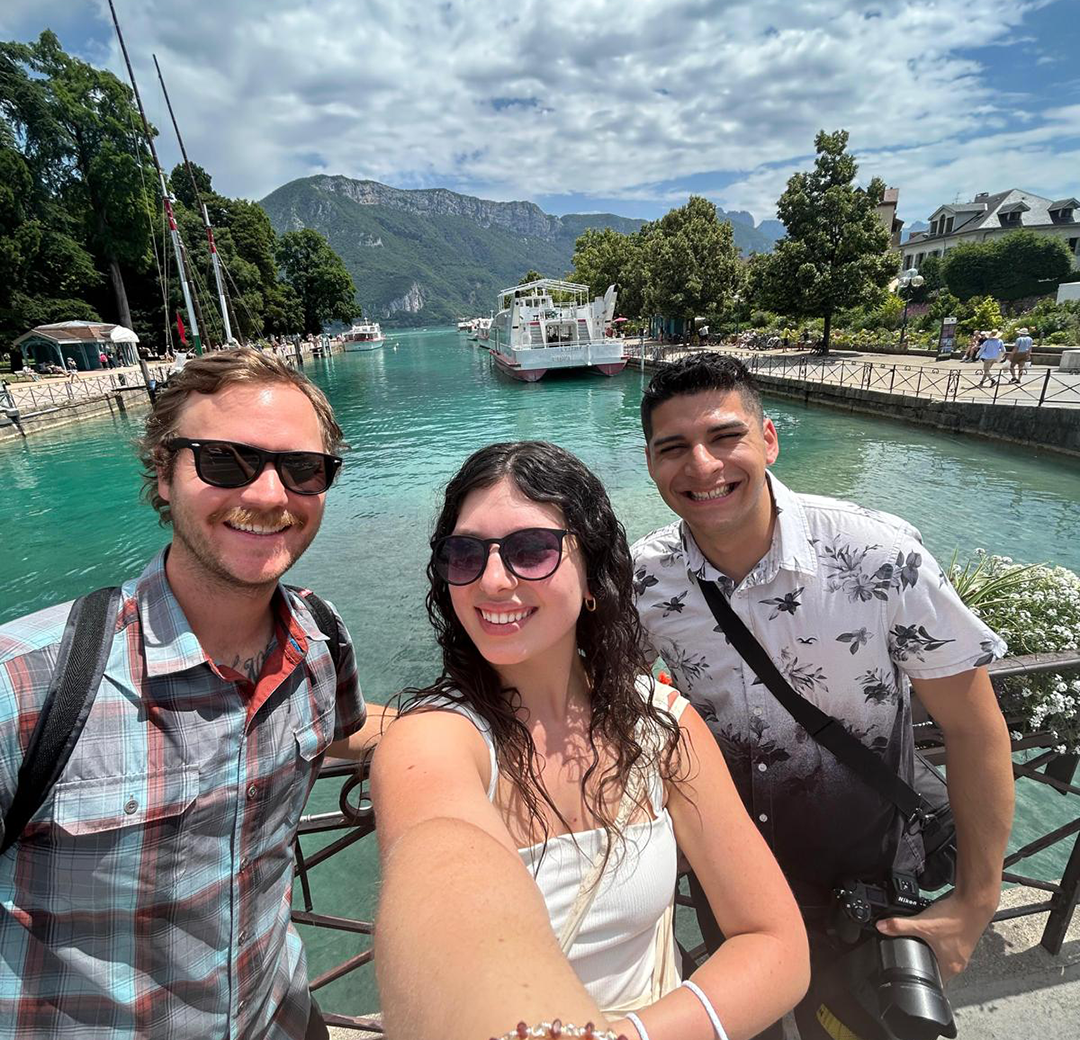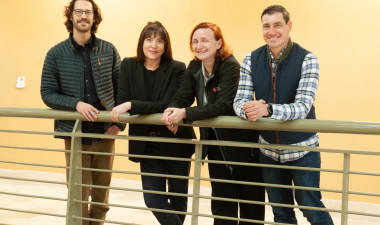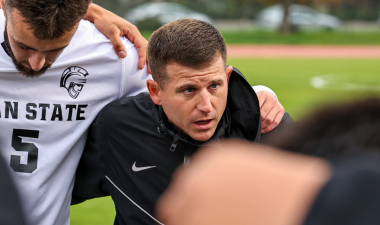Stanislaus State students and faculty members recently explored sustainable farming practices in France during an eight-day visit to the country. The Office of International Education and Global Engagement was instrumental in securing funding for the trip, with the support of Jennifer Helzer in her former role as interim director of international education. Led by Chantelise Pells, a lecturer in agriculture, geography and environmental resources, four students delved into the creation of collaborative institutions and collective action, where diverse stakeholders work together toward a shared goal of sustainable agriculture and resource management.
The trip provided the students with inspiring examples of successful coordination and collaboration between farmers and learning about the importance of urban agriculture and the implementation of aquaculture systems.
“We visited these aquaculture farms that were formed by medieval monks,” Pells said. “They’ve taken the wetlands, drained them for crop harvesting and channeled the water into nearby ponds to hold fish.”
This aquaculture system recycles groundwater and surface water systems are used for the irrigation of crops and the harvesting of fish. It’s one of many viable solutions to California’s drought issues.
Draining the wetlands and diverting the water into ponds to cultivate fish is a process that requires careful coordination among farmers to ensure smooth operation throughout the seasons. The collaboration allows each farmer to harvest their fish with ease and then utilize the water-free land to grow crops, creating an efficient and sustainable system.
“Having an accessible water source eases the tension between farmers regarding water rights and water usage,” said Daniel Rueda, who is a student in the geography and environmental resources program. “These aqua ponds demonstrate some of France’s sustainable agriculture techniques, and I think the United States would benefit greatly from implementing this practice into our own agriculture systems.”
An issue like the ongoing conflict in California concerning Delta water is one among several that could potentially benefit from the aquaculture systems in France. These systems could offer a possible way to manage the tension between farmers, who are in search of increased water access, and environmental groups such as Save the Delta, which aim to protect the fish population under threat.
In addition to observing aquaculture systems in France, Pells and her students explored the incorporation of urban agriculture within the country’s society. Urban agriculture, a method predominantly practiced in cities, enables the establishment of self-sufficiency in terms of food resources and reduces reliance on external supplies.
“We explored the significance of urban agriculture, aiming to create more agricultural spaces within cities,” Pells said. “The idea is to reduce reliance on external food sources and ensure a constant supply of fresh produce within the city.”
As cities evolve to cultivate their own agricultural needs, a shift in the relationship between cities and their food sources becomes palpable. In this context that Pells' observations converge and reveal the parallels between the United States and France, highlighting cultural nuances that underlines each societies' approaches to food and its impact on community.
“Interestingly, we found similarities with the situation in the U.S.,” Pells said. “The French exhibit a stronger focus on cuisine, placing a higher value on food quality rather than quantity. Unlike the generous portions commonly seen in the U.S., the French prefer smaller, refined servings, prioritizing the taste and overall dining experience. This cultural distinction is evident in their fondness for outdoor dining, gathering at charming cafes and fostering a more social connection with food. It is truly fascinating to witness such a distinct approach to dining.”
“I think the fact that they can still provide the country with quality commodities with extremely limited or no irrigation and farm almost solely using sustainable and regenerative practices is amazing,” sustainable agriculture major, Jacob Martino said. “I think the U.S. can definitely learn a thing or two from European farming culture and eventually implement them into large-scale production as needed.”
The exploration of sustainable farming practices in a rich cultural setting allowed the group to witness first-hand the potential for balancing agricultural production and environmental conservation.
“I’d like to focus on collaboration, forging partnerships and aligning objectives,” Pells said. “Understanding the characteristics of resources and regions that have an impact on agriculture is crucial. Successful examples, like France’s aquaculture system, allow our industry to grow and thrive. Exploring these cases provides valuable insights.”
As the students return to their communities in California’s Central Valley, they carry with them valuable insights and experiences gained in France. Armed with this knowledge, they are determined to apply innovative approaches to contribute to a more sustainable farming future, creating a positive impact on their local environments and communities.
“Every day was memorable during this trip, from the first day of travel to the last day coming home,” Jacob Martino said. “Hands down the most memorable day was our last day. We had an open day to do whatever we wanted, so we decided to take a bus to Annecy. We spent the day there exploring shops and restaurants, eating local food and swimming in the clear blue water of Lake Annecy.”
“We had such a great time,” Pells said. “I wasn’t sure what to expect from my first study abroad trip. The students were fantastic, everything went smoothly, and I couldn’t have been happier.”




